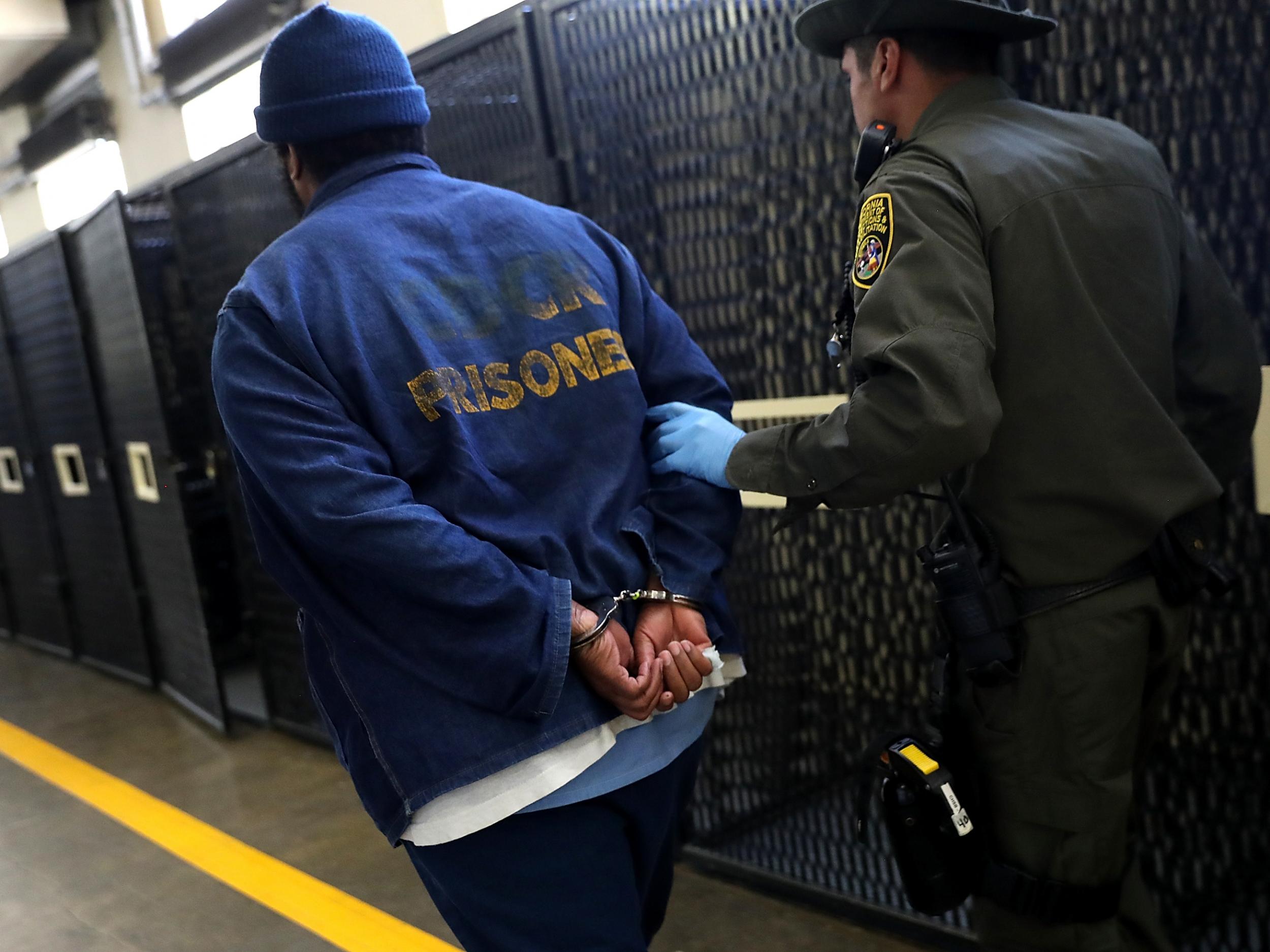California death penalty: Voters to decide on abolition at the same time as choosing new US president
Californians asked to vote on whether to abolish the death penalty, and whether to speed it up — as well as on legalising marijuana and making porn stars wear condoms

People voting in the US presidential election will also decide whether or not to abolish capital punishment in the state with the largest number of people on death row.
Californians will be asked to vote on proposition 62 on Tuesday, deciding whether to make California one of 25 states to have abolished or suspended the death penalty.
If the proposal suceeds, life without parole will replace state execution for the 740 people currently awaiting lethal injection in the West Coast state.
According to polls, the result will be close, with many voters saying they were still undecided as election day approached.
California previously voted on the same issue in 2012, when 52 per cent of respondents backed keeping the death penalty.
But public opinion on the issue is thought to have changed in recent years in the US, amid concerns about the effectiveness and availability of the drugs used.
In May, pharmaceutical giant Pfizer announced that it would no longer permit its products to be used in lethal injections – a move that shut off the final remaining source of approved chemicals for state executions.
Campaigners against the death penalty said the move meant that, unless a state had stockpiled supplies of lethal compounds, authorities would have to seek illicit sources or else adopt a different method of execution, such as the electric chair or a firing squad.
Even before the ban, difficulties in accessing and mixing ingredients in the cocktail of drugs used to kill people – usually an anaesthetic, a paralytic, and potassium chloride to stop the heart – had caused slow and botched executions.
In Oklahoma, Charles Warner took 18 minutes to die when he was put to death in January 2015. When asked to give his last words, he said the needle inserted hurt like acid.
“My body is on fire,” said Warner, who was convicted in 1997 of the sexual assault and murder of an 11-month old girl.
In July 2014, convicted killer Joseph Wood III died one hour and 57 minutes after his execution began in Arizona. Death penalty experts said it was one of the longest times it had taken drugs to kill a condemned man in the US.
Despite the number of people on death row in California, just 13 people have been executed in the state since the death penalty was reinstated in the US in 1976.
The last man killed by capital punishment in California was Clarence Ray Allan in January 2006. Despite being a frail 76-year-old at the time of his death, Allan had to be given two doses of potassium chloride before his heart stopped. Shortly afterwards, state executions were halted completely because of problems with lethal injection protocols.
In the last 10 years, California's death row population has grown from 646 people to around 740. Last year, the state officially ran out of space for its condemned prisoners, and had to request $3.2m (about £2.6m) from lawmakers to expand its death row cells.
More than 100 people have died awaiting execution with a quarter of them killing themselves, according to the California Department of Corrections and Rehabilitation (CDCR).
The cost to California taxpayers, according to a 2011 study, has been more than $4bn (£3.2bn) – and by 2030, the projected cost will reach $9bn (£7.2bn), with more than 1,000 people on death row.
Another propostition on the ballot is a measure to speed up the legal process and resume executions. Proposition 66 would remove layers of red tape and limit appeals.
It is passionately supported by campaigners like former NFL star Kermit Alexander. Four members of his family were killed by a contract killer who went to the wrong house. The murderer is still on death row 30 years after being convicted.
If both propositions pass, the one with the most votes will become law.
Two other states will also vote on the death penalty on Tuesday.
Nebraska will vote on whether to reinstate capital punishment, which was repealed by the state legislature in 2015.
Oklahoma will vote to reaffirm the state’s commitment to the death penalty. In 2015, the state’s attorney general suspended executions following a botched attempt at a lethal injection.
In addition to selecting a US president and deciding the fate of people on death row, voters will decide more than 150 other measures in states across the US.
There are votes taking place on the minimum wage, housing for the homeless, and free healthcare, for example.
Californians are also being asked to decide whether or not to legalise marijuana, and if state authorities should make porn actors wear condoms while filming videos.
Join our commenting forum
Join thought-provoking conversations, follow other Independent readers and see their replies
Comments
Bookmark popover
Removed from bookmarks